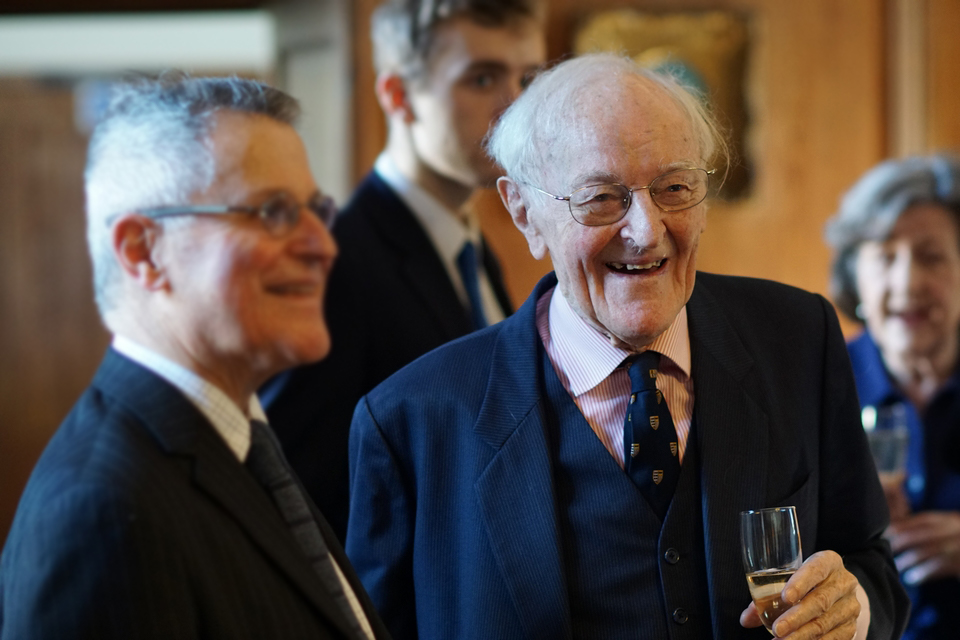Professor David Buckingham CBE FRS (1930 - 2021)
Pembroke is saddened to announce the death of Honorary Fellow Professor David Buckingham CBE FRS (1970).
David died peacefully at home on Thursday 4 February, surrounded by his family.
Lord Smith, Master of Pembroke, commented, “We are all deeply saddened by the loss of David Buckingham. David was a brilliant scientist, responsible for a number of ground-breaking discoveries in the field of molecular science and chemical physics. He had a scientific unit of measurement (of electric quadropole) named after him, a signal honour in tribute to his towering scientific status. He was also a revered teacher, and one of the gentlest and most vivacious people you could hope to meet. Here in Pembroke, we will all miss him very much."
Amyand David Buckingham was born in Sydney, Australia in 1930. After taking a BSc and an MSc at the University of Sydney, he studied for a PhD at Cambridge (Corpus Christi), before moving to the University of Oxford. In 1965 he was appointed Professor of Theoretical Chemistry at the University of Bristol.
David joined Pembroke as a Fellow in 1970, after his appointment as the first holder of the Professorship of Theoretical Chemistry at the University of Cambridge. He played a full role in the life of Pembroke, including serving on College committees, acting as Treasurer and captaining the Fellows' cricket team. He retired as a Fellow in 1997. In 2005 he was admitted as an Honorary Fellow.
David's work studying the optical, electric and magnetic properties of molecules and intermolecular forces shed light on fundamental physical properties of matter. As well as working on theoretical models, his work also led to the development of new experimental methods for measuring various quantities. In 1963 he made the first direct measurement of a molecular electric quadrupole moment on a carbon dioxide molecule. His research led to an improved understanding of nuclear magnetic resonance, which is now routinely used in advanced medical imaging techniques. With Laurence Barron he pioneered the study of Raman optical activity, helping to characterise optically active materials and the differing ways in which they scatter left and right circularly polarised light
His work brought him much recognition. In 1975 he was elected a Fellow of the Royal Society, which awarded him the Hughes Medal in 1996 for his contributions to chemical physics. The Royal Society of Chemistry named him Tilden Lecturer for 1964-65, and in 1998 awarded him the Faraday Medal and Lectureship. The Institute of Physics awarded him the 1995 Harrie Massey Medal and Prize. In 2007 he became the first-ever recipient of the Ahmed Zewail Prize in Molecular Sciences.
David was also a Foreign Associate of the National Academy of Sciences, a Foreign Honorary Member of the American Academy of Arts and Sciences, a Foreign Member of the Royal Swedish Academy of Sciences and a Member of the International Academy of Quantum Molecular Science. He also edited a number of scientific journals, including Chemical Physics Letters between 1978-1999.
A talented cricketer, David played first-class matches for Cambridge University Cricket Club (CUCC). He served as president of CUCC between 1990-2009.
The College's thoughts are with David's widow Jill, daughters Lucy and Alice, son Mark, and the rest of his family.
Image: Professor David Buckingham celebrating his 90th birthday in Pembroke, January 2020. (Credit: Harry McAllister)

